Free School Meals Sourced from Small-Scale Farmers: a Win-Win Approach for Food Systems Transformation
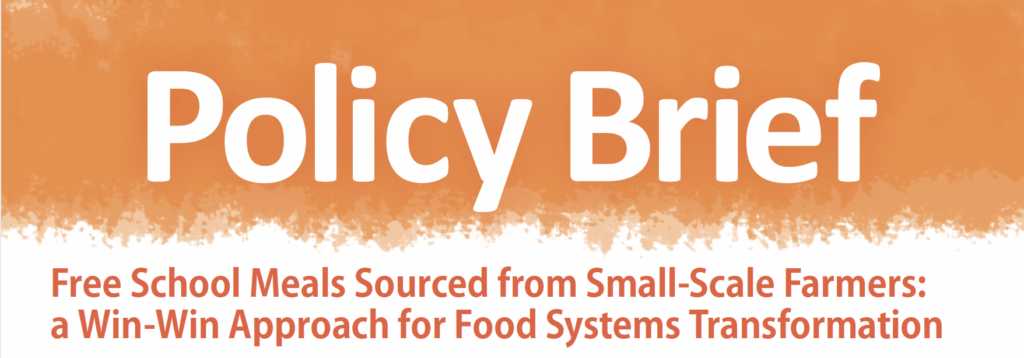
Free school meals are a strategic lever to implement the right to food and nutrition in the EU, by ensuring all children have access to healthy and nutritious food, daily. Free school meals can also support the transition to sustainable food systems by linking school meals to small-scale farmers using organic or agroecological production methods. Finally, purchasing school meals from small and medium scale farmers is a lever for social justice as it provides a steady source of income to those who work the land in our territories. This policy brief advances four policy recommendations to the EU and its Member States on how to use free school meals as a tool to implement the right to food and nutrition in the EU, and foster a transition to sustainable food systems.
Local and Regional Governments Have a Key Role to Play in the Transition to Territorial Food Systems
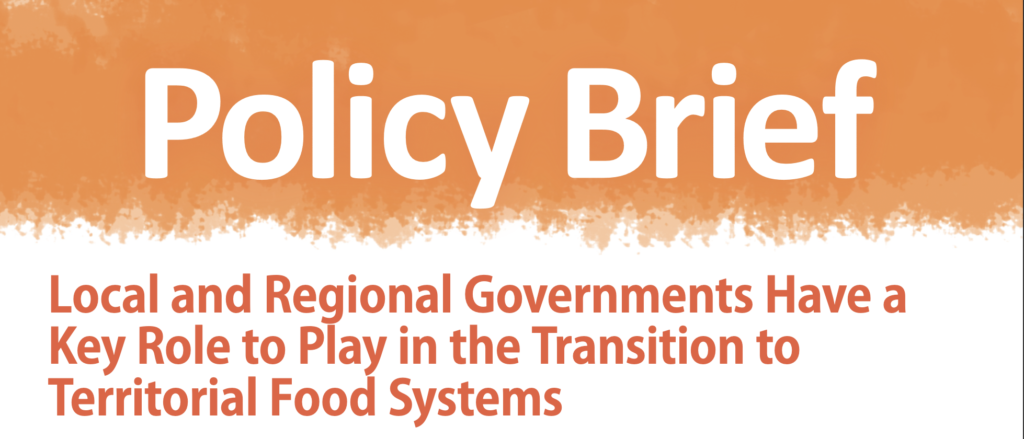
Since local and regional governments (LRGs) have the mandate to procure food for public canteens in the EU, the purpose of this policy brief is to provide LRGs with insights on how to connect small-scale farmers with food tendering processes in legally compliant ways. LRGs can apply more inclusive sustainable food procurement procedures while respecting the existing EU regulatory framework and principles. In doing so, LRGs have the potential to support small-scale farmers and save them from disappearing across Europe. Peter Defranceschi, Head Global Food Program, ICLEIFrancesca D’Addario, Sustainable Food Systems officer, ICLEI
Public Food Procurement as a Powerful Tool to Boost Territorial Food Systems
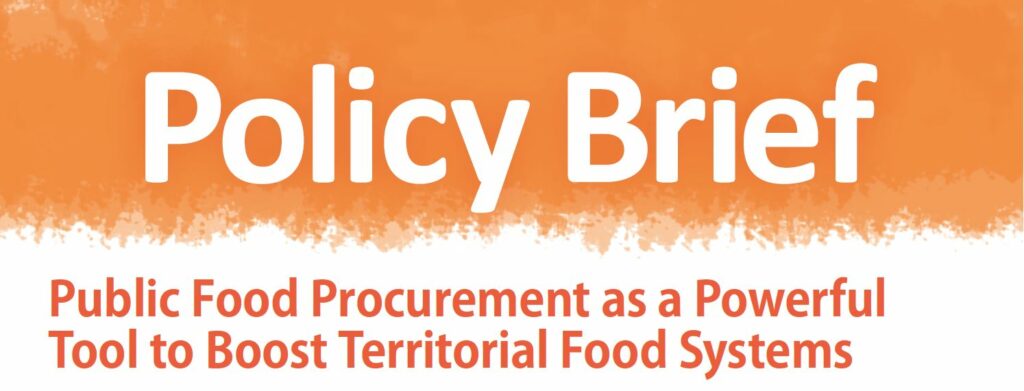
This policy brief provides recommendations on how to achieve these objectives with a focus on three key areas: 1. How to link small-scale farmers with the public plate; 2. School meals as a powerful tool to address social equity (all school children and young people), health (tackling fast-growing child obesity) and education (food culture linked to territory); 3. Enhancing multi-level food governance through national networks of procurers. EU policymakers have the possibility to implement several actions to build a more inclusive Sustainable Public Sector Food Procurement (SPSFP) and to enable public canteens to be a catalyst of food system transformation. The recommendations identified in this policy brief have the potential to boost a transition toward a more sustainable and inclusive food system, building resilient city food regions. Peter Defranceschi, Head Global Food Program, ICLEI; Francesca D’Addario, Sustainable Food Systems officer, ICLEI
Sustainable food systems through public food procurement and collaborative agri-food chains
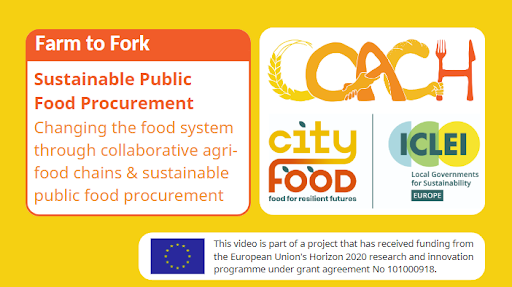
Public food procurement can help to support small-scale farmers and at the same time improve the access to fresh, seasonal and healthy food in the public canteens. This video is the first-ever cartoon on farm-to-fork sustainable public procurement and highlights the importance of a multi-stakeholders approach in promoting inclusive, healthy, and sustainable food procurement processes from farm to fork. The message is clear: with the right procurement criteria, all the Sustainable Development Goals can fit on one public plate. Small Plate, Big Impact!
Storytelling for advocacy
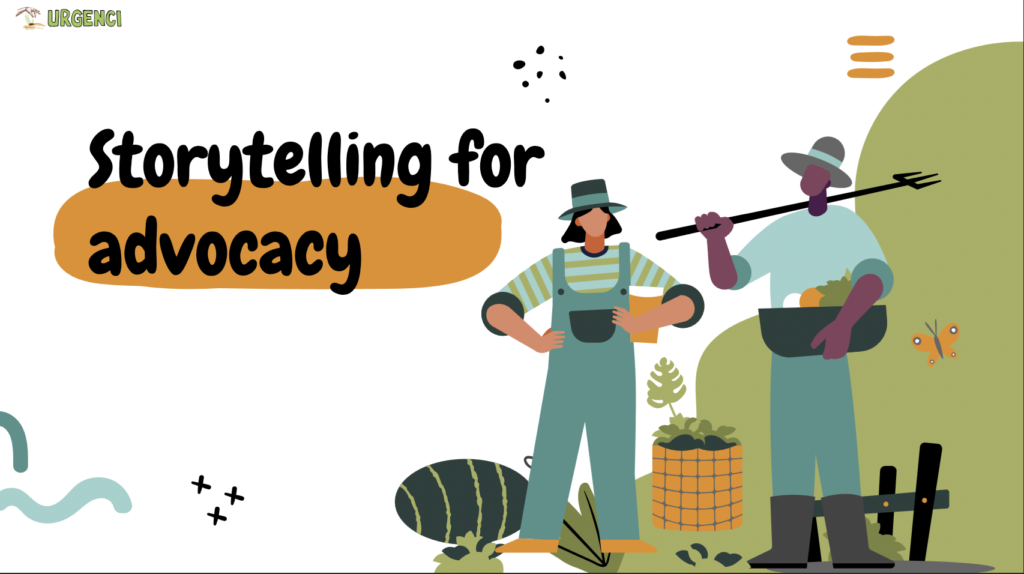
This is a short presentation in preparation of a workshop on storytelling produced by Urgenci.
The Food and Drinks 2030 Toolkit
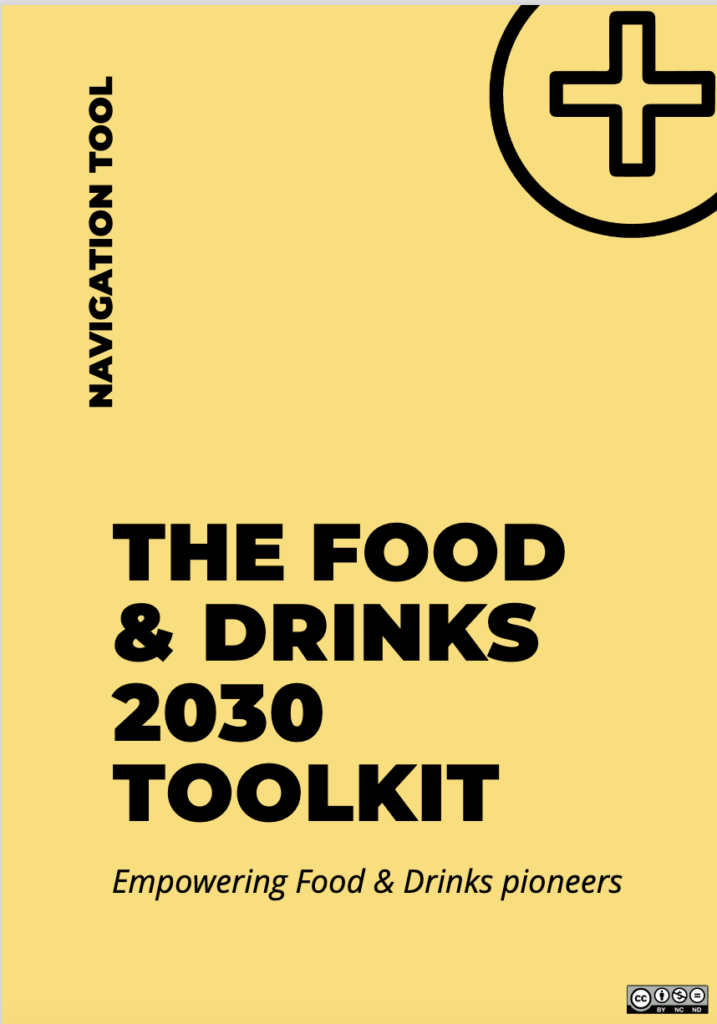
THE FOOD AND DRINKS 2030 TOOLKITA practical guidebook to empower Food and Drinks Pioneers.First edition, Copyright © May 2021.The Positive Impact Community – www.makeapositiveimpact.co – @PositiveRegen
Guía de estudios poscoloniales y decoloniales
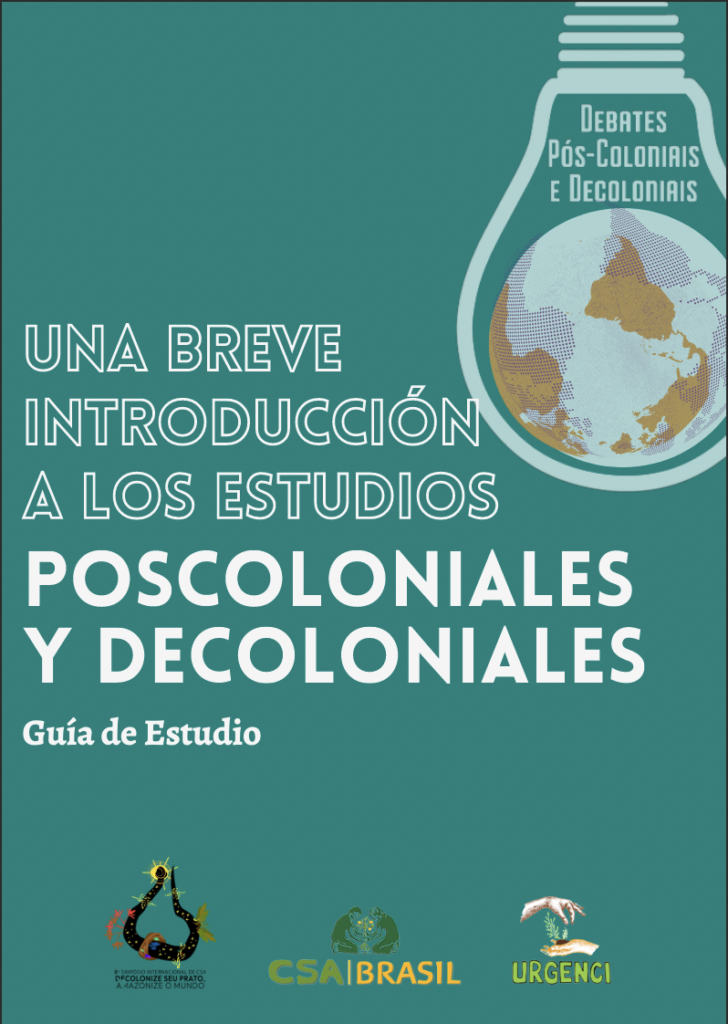
Una breve introducción a los estudios poscoloniales y decolonoicales.
Guia de estudos pós-coloniais e de coloniais
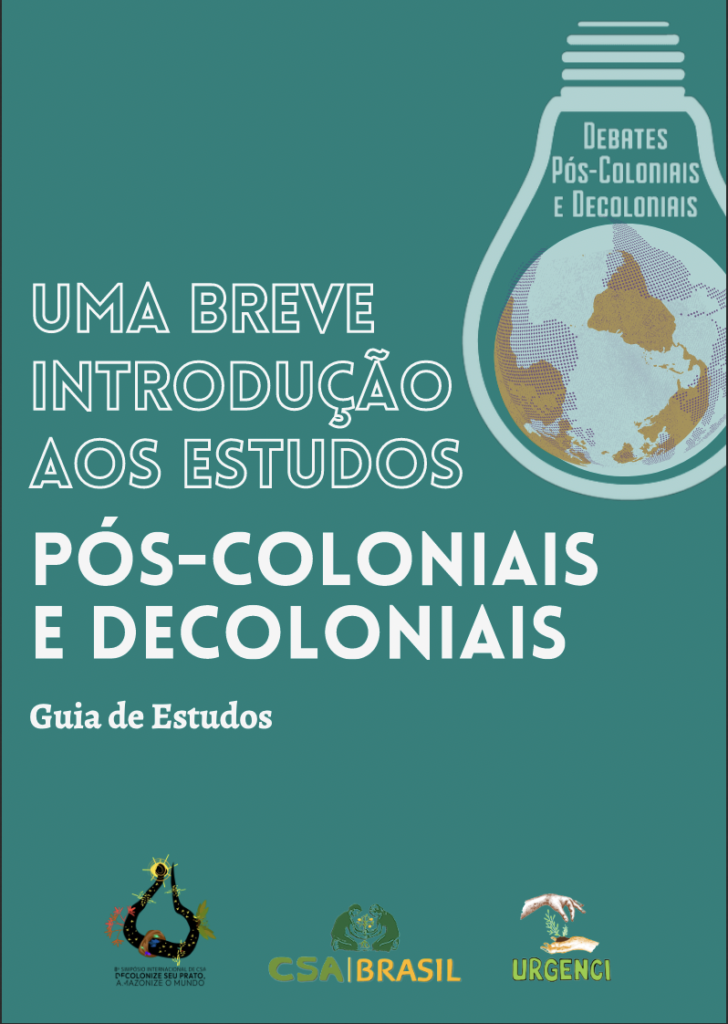
Uma breve introdução aos estudos pós-coloniais et decoloniais.
Post-colonial study guide
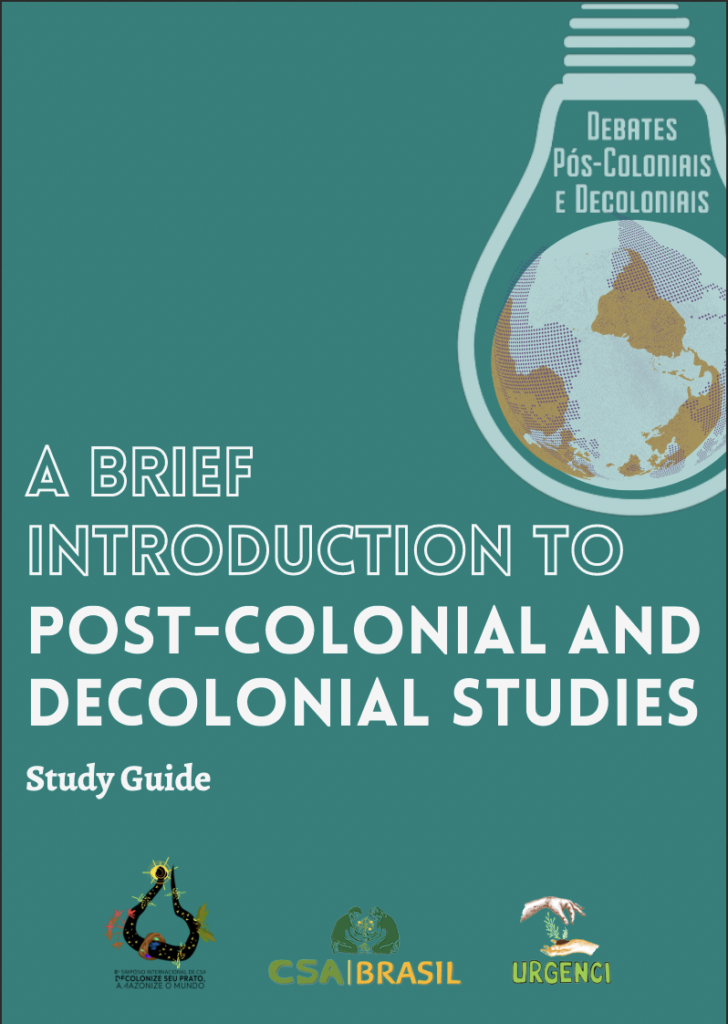
A brief introduction to post-colonial and decolonisation studies.
Agriculture contractuelle de proximité: guide de démarrage
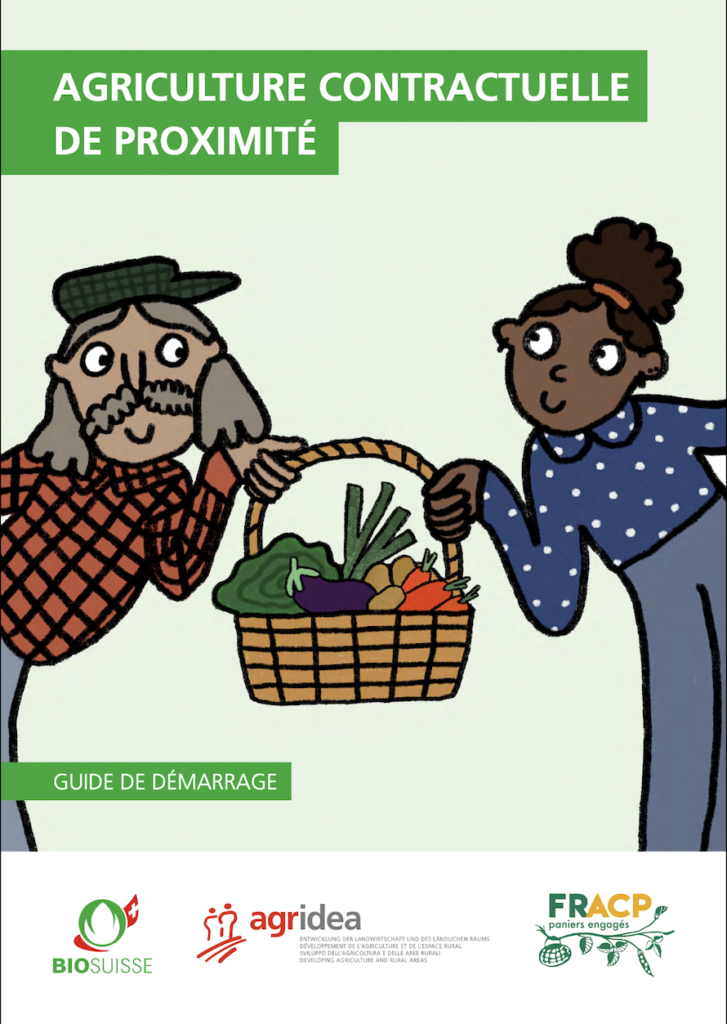
En Suisse romande, on parle d’Agriculture contractuelle de proximité (ACP), en Suisse alémanique, de Regionale Vertragslandwirtschaft ou de Solidarische Landwirtschaft (agriculture solidaire). Ailleurs dans le monde, on trouve le modèle français de l’AMAP (Associations pour le maintien d’une agriculture paysanne), les teikei au Japon ou encore la Community supported agriculture (CSA) dans les pays anglophones. Autant de noms (et d’acronymes) pour désigner des approches similaires autour d’une idée commune : rapprocher les consommateur-trice-s et les producteur-trice-s grâce à un partenariat, dans une optique de construire un système alimentaire plus durable.